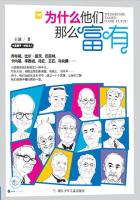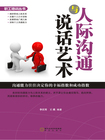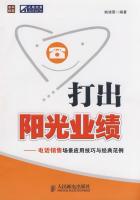Things to Think of First
A FOREWORD
The efficiency of a book is like that of a man, in one important respect: its attitude toward its subject is the first source of its power. A book may be full of good ideas well expressed, but if its writer views his subject from the wrong angle even his excellent advice may prove to be ineffective.
This book stands or falls by its authors' attitude toward its subject. If the best way to teach oneself or others to speak effectively in public is to fill the mind with rules, and to set up fixed standards for the interpretation of thought, the utterance of language, the making of gestures, and all the rest, then this book will be limited in value to such stray ideas throughout its pages as may prove helpful to the reader—as an effort to enforce a group of principles it must be reckoned a failure, because it is then untrue.
It is of some importance, therefore, to those who take up this volume with open mind that they should see clearly at the out-start what is the thought that at once underlies and is builded through this structure. In plain words it is this:
Training in public speaking is not a matter of externals—primarily; it is not a matter of imitation—fundamentally; it is not a matter of conformity to standards—at all. Public speaking is public utterance, public issuance, of the man himself; therefore the first thing both in time and in importance is that the man should be and think and feel things that are worthy of being given forth. Unless there be something of value within, no tricks of training can ever make of the talker anything more than a machine—albeit a highly perfected machine—for the delivery of other men's goods. So self-development is fundamental in our plan.
The second principle lies close to the first: The man must enthrone his will to rule over his thought, his feelings, and all his physical powers, so that the outer self may give perfect, unhampered expression to the inner. It is futile, we assert, to lay down systems of rules for voice culture, intonation, gesture, and what not, unless these two principles of having something to say and making the will sovereign have at least begun to make themselves felt in the life.
The third principle will, we surmise, arouse no dispute: No one can learn how to speak who does not first speak as best he can. That may seem like a vicious circle in statement, but it will bear examination.
Many teachers have begun with the how. Vain effort! It is an ancient truism that we learn to do by doing. The first thing for the beginner in public speaking is to speak—not to study voice and gesture and the rest. Once he has spoken he can improve himself by self-observation or according to the criticisms of those who hear.
But how shall he be able to criticise himself? Simply by finding out three things: What are the qualities which by common consent go to make up an effective speaker; by what means at least some of these qualities may be acquired; and what wrong habits of speech in himself work against his acquiring and using the qualities which he finds to be good.
Experience, then, is not only the best teacher, but the first and the last. But experience must be a dual thing—the experience of others must be used to supplement, correct and justify our own experience; in this way we shall become our own best critics only after we have trained ourselves in self-knowledge, the knowledge of what other minds think, and in the ability to judge ourselves by the standards we have come to believe are right. "If I ought," said Kant, "I can."
An examination of the contents of this volume will show how consistently these articles of faith have been declared, expounded, and illustrated. The student is urged to begin to speak at once of what he knows. Then he is given simple suggestions for self-control, with gradually increasing emphasis upon the power of the inner man over the outer. Next, the way to the rich storehouses of material is pointed out. And finally, all the while he is urged to speak, speak, SPEAK as he is applying to his own methods, in his own personal way, the principles he has gathered from his own experience and observation and the recorded experiences of others.
So now at the very first let it be as clear as light that methods are secondary matters; that the full mind, the warm heart, the dominant will are primary—and not only primary but paramount; for unless it be a full being that uses the methods it will be like dressing a wooden image in the clothes of a man.
DALE CARNEGIE
And
J. BERG ESENWEIN
January 1, 1915















